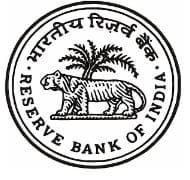Public Credit Registry: New Information Repository to be set up by RBI
The Reserve Bank of India (RBI) has announced that it will set up a Public Credit Registry (PCR) as a repository of information regarding loan information of individuals and corporate borrowers. This decision has been taken as per recommendations of Y.M. Deosthalee committee set up by the central bank.
Y.M. Deosthalee Committee Recommendations
The Y.M. Deosthalee committee was set up by RBI and had submitted its report in April, 2018. The major recommendations of this committee report are as follows:
- RBI should set up a Public Credit Registry in due course and this should be backed by a legal framework. The central bank may also consider moving such registry to a separate non-profit entity.
- PCR will work as a repository of all loan contracts, duly verified by reporting institutions for all / any lending in India, regardless of the amount of the loan.
- PCR should also capture data such as external commercial borrowings, market borrowings, and all contingent liabilities; and should provide an holistic picture about the borrower’s indebtedness.
- The registry should capture both positive and negative information about all loans. The borrowers should also be able to access their own history.
- The PCR data should be available to all stakeholders such as banks on a need-to-know basis. There should be adequate safeguards on privacy protection.
- Onus of data quality should be on reporting agencies and institutions and action should be taken against the institutions in case of any violations in rules.
- The database should also be linked to defaulter databases such as those maintained by Export Credit Guarantee Corp. of India, GST network etc.
RBI Action
On 6 June,2018, RBI has disclosed the plans to establish the PCR in modular and phased manner. This registry will distinguish between bad borrowers and good borrowers and will offer interest rates accordingly. It will help in improving access to credit, strengthen the credit culture and strengthen the banking system because at present, the corporate borrowers lend from multiple banks without disclosing their existing debt.
Month: Current Affairs - June, 2018


